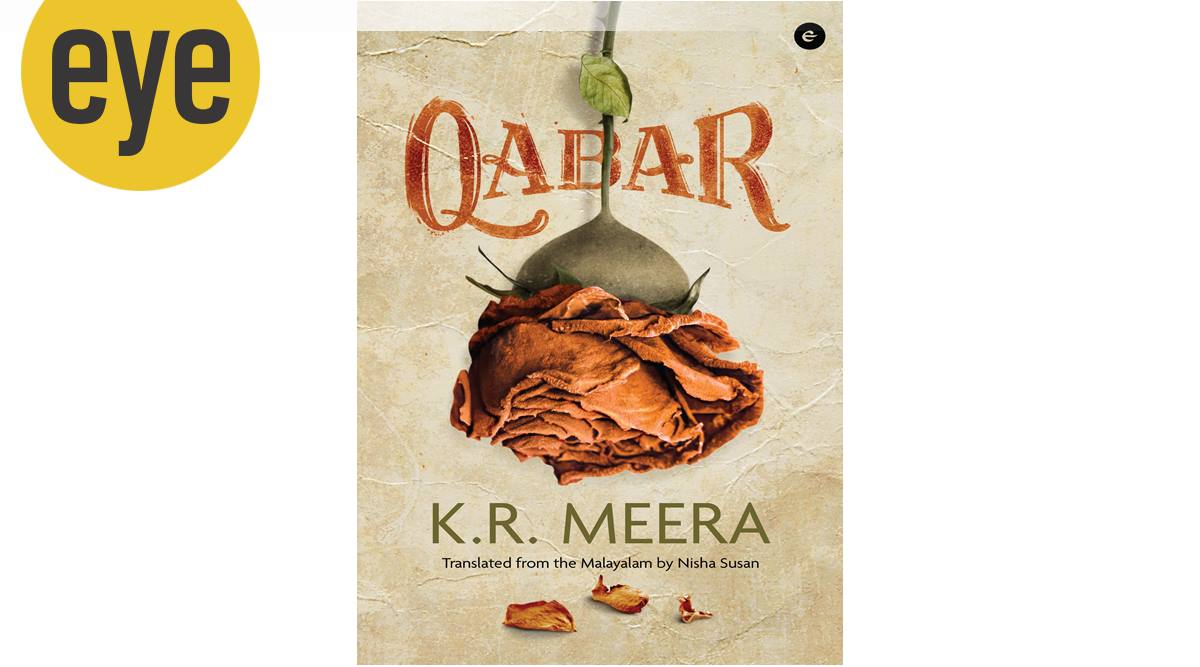 Qabar by K R Meera; Translated by Nisha Susan; Published by Eka (Westland); 112 pages; Rs 399 (Source: Amazon.in)
Qabar by K R Meera; Translated by Nisha Susan; Published by Eka (Westland); 112 pages; Rs 399 (Source: Amazon.in) What are the things we bury in our hearts? Yearnings that we are too afraid to acknowledge, let alone act upon. Facts that inconvenience and irritate. Histories we would rather forget, and the people we once were. Excavations, if embarked upon, take their own time and, all too often, the results don’t necessarily offer comfort or closure. However, KR Meera’s novel Qabar, translated from the Malayalam by Nisha Susan, offers a glimpse of the one thing that might make the process worthwhile: the feeling of liberation that comes with finally confronting a long-buried truth.
The titular qabar (grave) is the subject of a civil suit that comes up before Additional District Judge Bhavana Sachidanandan who, the moment she catches sight of the plaintiff, Kaakkasseri Khayaluddin Thangal, feels her quiet, minutely-scheduled life spinning out of control. A well-dressed man with “Sean Connery’s body” and “Kamal Haasan’s eyes”, Thangal affects her in a way that seems magical. Perhaps there is something unnatural about how her head spins and she loses focus as soon as she catches a whiff of the Edward rose perfume he exudes; after all, rumour has it that he channels the powers of the djinns to turn ordinary objects, like phones and pens, into snakes, and to conjure up powerful illusions and read minds. Or, perhaps, it’s just the long-suppressed desires welling up through the body of a woman who has only been embraced by her own child for six years. Her outer self had become a “qabar” whose dark depths swallowed her inner self.
Thangal is petitioning the court to prevent the destruction of an ancestor’s qabar, which is located on a piece of land that has been sold off, without his knowledge, to a charitable trust. An auditorium is set to come up on the land, but for Thangal, the remains of an ancestor who had gone to Mecca are sacred and worth preserving – not for religious reasons, but because those are the roots from which Thangal himself grew. In the black-and-white letter of the law, however, familial sentiment – and even the actual, physical existence of the structure – has little weight, unless backed up with documents and Thangal loses the case in Bhavana’s court.
Through the book, Bhavana is haunted by an ancestor of her own, Yogishwaran Ammavan, the details of his story varying according to who the narrator is. Why did he return from Kashi? Who were the two girls who accompanied him on his return, whose feet didn’t touch the ground and who could only eat food that was untouched by fire or rain? Did he indeed fall into a pit and die or was he killed by his own? Her mother provides the first clue when she warns, “This is what happens when you have too much pride in your traditions. You can’t talk about everything openly. Then you end up manufacturing a new legend.” The older woman speaks from a position of authority, having consigned to the rubbish bin another convenient myth: that of the woman whose sole purpose in life is to serve her husband and family. She lives alone, on “a scrap of land and a one-room house”, a room of her own, since she left a husband who demanded too much and gave too little.
Reading this novella one can’t help but feel like this is merely a glimpse through the keyhole of a locked door. The perspective is necessarily narrow, focused tightly on Bhavana and her attempts to make sense of all that’s unfolded in her life since Thangal walked into it. But casting their shadows on these characters and their lives are larger events, taking place beyond the narrow outline within which we perceive Bhavana, Thangal and others: Other historical structures, in other parts of the country, are also being razed, the very basis of their existence being questioned in other courts of law. Elsewhere too, like in Bhavana’s world, justice and law are not always on the same side; history is forgotten or suppressed, and myths are manufactured to shore up pride — in oneself, one’s family or community. It is in these revelatory glimpses that Meera reveals her masterly control of her material, the lushness of her prose never overwhelming the harsh context in which we all know stories such as this play out.
- The Indian Express website has been rated GREEN for its credibility and trustworthiness by Newsguard, a global service that rates news sources for their journalistic standards.

